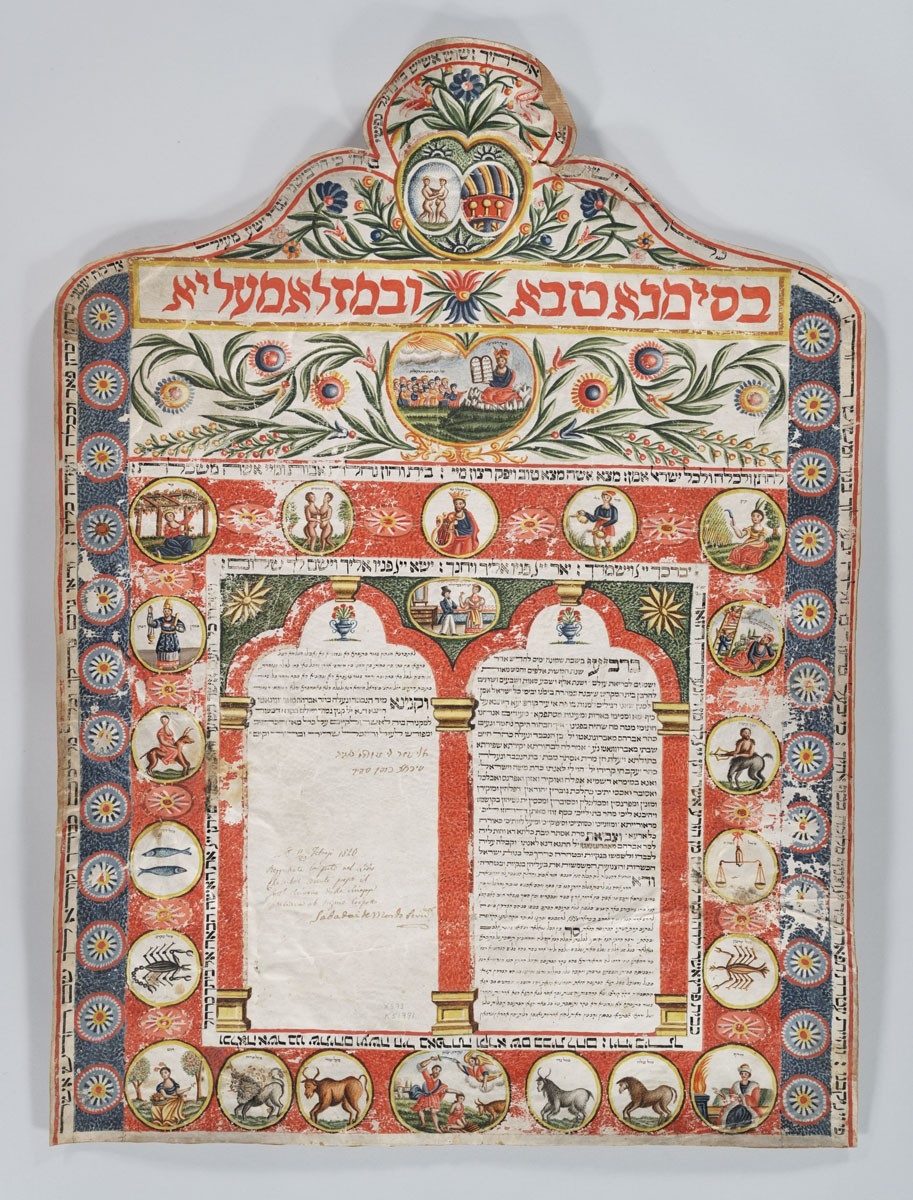Hebraica and Judaica

Columbia University has been collecting rare Hebraica and Judaica since its inception in 1754.
In 2012, Columbia mounted a major exhibition of the Hebraica and Judaica manuscripts entitled The People in the Books, which shows the broad and deep scope of the collection. A second exhibition, in 2018, celebrated Yiddish collections at Columbia in print, manuscript, and other media. The Melting Pot was an exhibition posted in 2006, highlighting collections focusing on Russian Jewish New York.In 2022, Columbia partnered with the Jewish Theological Seminary to host an exhibition on the Jews of Corfu.
Other digitized collections relate to the Jews of Italy, including Italian Jewish Community Regulations and materials relating to Jews and the Inquisition of Bologna.
The Judaica collection currently contains:
- About 1700 manuscripts
- 31 incunabula
- Over 500 sixteenth-century books
- Thousands of books from the 17th – 18th centuries
- Various archival material relating to prominent areas of Jewish and Israel Studies
- Language and Culture Atlas of Ashkenazic Jewry
Columbia’s Hebrew manuscript collection is one of the largest of its kind in North America, containing more manuscripts than the combined holdings of Harvard University, Yale University, the Library of Congress, and the University of Pennsylvania. At this time, there are over 1600 records in CLIO, Columbia’s online catalog, for the Hebraica and Judaica manuscripts in our collection.
The manuscript collection is very diverse, covering many different times and places. The manuscripts span the 10th – 20th centuries. Many originate in Italy, but other places of origin include France, Greece, Persia, Yemen, North Africa, and the Netherlands. It also includes one of the most important collections for the study of Byzantine Jewry. About 270 of our manuscripts are available for browsing and download at the Internet Archive, and over 1400 of our manuscripts are available for viewing only at the National Library of Israel's KTIV: The International Collection of Digitized Hebrew Manuscripts.
Topics include philosophy, kabbalah (including some early works and many manuscripts from the Lurianic school), liturgy (prayerbooks and mahzorim), Jewish law, Rabbinic texts and related commentaries, poetry, Bible and its exegesis, responsa, letters from individuals and communities, historical documents, Ketubot (marriage contracts), documents from the Cairo Genizah and other general literature.